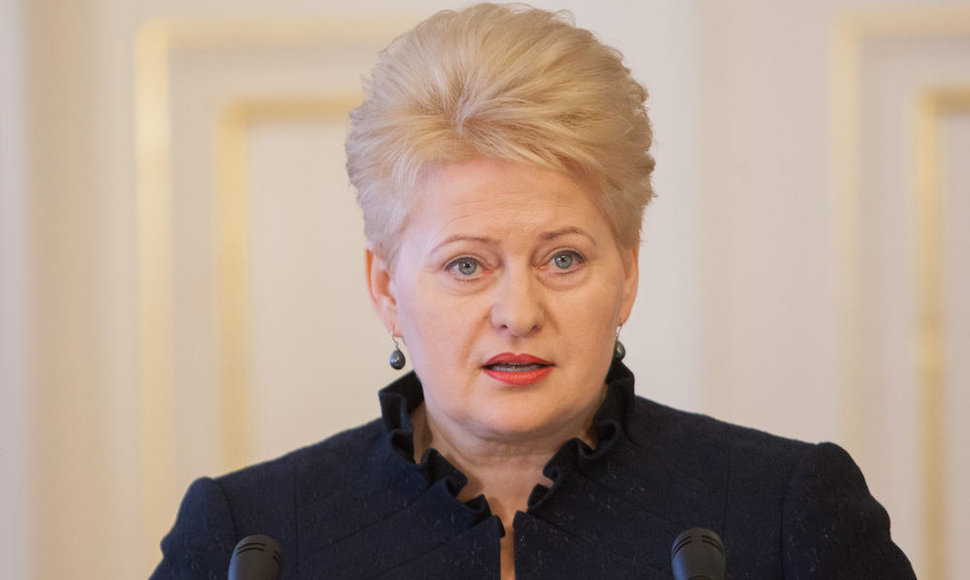She emphasized benefits of nuclear energy, stating that people should be consulted with "following a very realistic explanation of why one project or another would pay off.".
"The public opinion expressed in the non-binding referendum is very important; however, it was shaped, as I see it, in a very irresponsible manner, as there was no information and plenty of propaganda of lobbyist interests. I can say people were deceived," Grybauskaitė said in an interview to the weekly magazine Veidas.
Speaking about Visaginas Nuclear Power Plant (NPP), she said that nuclear energy was among the cheapest forms, urging political parties to sign an agreement on energy policies.
"Nuclear energy is among the cheapest and is not the least safe, given that reactors are safe and well-maintained," said the president.
In her words, "speaking about alternative sources of energy without mentioning the price and possible consequences for the country means deceiving people."
"It is too optimistic for a poor country like Lithuania to dream about satisfying our developing economic needs with solar, wind, and biomass energy. Today we are forced to buy solar energy at a price that is five times higher than the market price, the situation is similar with wind energy. Biofuel is cheaper, but this means we will have to cut our forests," Grybauskaitė told the magazine.
During the non-binding referendum held in conjunction with the parliamentary elections on 14 October, 34.09 percent of votes came in support of construction of a new nuclear plant, while 62.68 percent of voters were against. The voter turnout was 52.58 percent.
Under the project of the previous right-wing government, construction of the 1,350 mega-Watt nuclear plant would have involved Japan's Hitachi corporation and energy companies of the three Baltic states. The plan was to build the power station by 2020-2022.
The Social Democratic Party that came to power after the elections criticized the project, with the final decision on the nuclear plant yet to be made.












